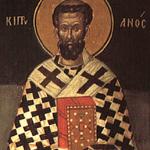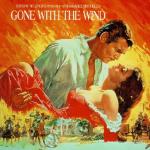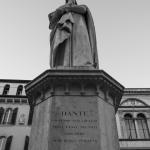 For most of the Inklings, one of the things which bound them together was a distrust of the ways of modernity.[1] In many ways, they were reactionaries, and each tried to subvert the modern world by bringing to it an adaptation of some pre-modern way of life. For Tolkien, the Catholicized William Morris, aesthetic grace was necessary to heal a natural world damaged by industrialization. For C.S. Lewis, it was the attempt to bring together all that was good and holy from the ancient world and to use it and its combined wisdom to combat the nihilism inherent in a desacralized society. For Charles Williams, it was an attempt to reawaken the world to the presence of the supernatural, which not only is all around us, but immanent in us, best expressed by various forms of supernatural romances.[2] For Owen Barfield, it is through a historical exploration of the evolution of consciousness and its effects on human individuals and societies, to show that this evolution has not always had long term benefits for humanity, and that it might be necessary to restore lost forms of human consciousness in order to heal the harm modernity has caused to the world.[3] Owen Barfield, said to be the first and last Inkling, wrote the novella Eager Spring in 1988, and in doing so, wrote what must be seen as the coda to the work of the Inklings as a whole. While there are some flaws to the work (it gets rather didactic when Barfield tries to introduce us to the “wisdom” of Steiner), it really brings together the themes of his friends together with his own, showing what united them and why their movement remains important for the 21st century.
For most of the Inklings, one of the things which bound them together was a distrust of the ways of modernity.[1] In many ways, they were reactionaries, and each tried to subvert the modern world by bringing to it an adaptation of some pre-modern way of life. For Tolkien, the Catholicized William Morris, aesthetic grace was necessary to heal a natural world damaged by industrialization. For C.S. Lewis, it was the attempt to bring together all that was good and holy from the ancient world and to use it and its combined wisdom to combat the nihilism inherent in a desacralized society. For Charles Williams, it was an attempt to reawaken the world to the presence of the supernatural, which not only is all around us, but immanent in us, best expressed by various forms of supernatural romances.[2] For Owen Barfield, it is through a historical exploration of the evolution of consciousness and its effects on human individuals and societies, to show that this evolution has not always had long term benefits for humanity, and that it might be necessary to restore lost forms of human consciousness in order to heal the harm modernity has caused to the world.[3] Owen Barfield, said to be the first and last Inkling, wrote the novella Eager Spring in 1988, and in doing so, wrote what must be seen as the coda to the work of the Inklings as a whole. While there are some flaws to the work (it gets rather didactic when Barfield tries to introduce us to the “wisdom” of Steiner), it really brings together the themes of his friends together with his own, showing what united them and why their movement remains important for the 21st century.
Eager Spring is many things at once: a story about the trials and tribulations of romantic love (bringing in elements Charles Williams’ work into it), the story of academia and its limitations (bringing in elements of C. S. Lewis’ work into it), the story of human destruction of the environment in the name of industrial progress (bringing in elements of J.R.R. Tolkien’s work into it), and the story of human evolution and the effects of scientific progress on the way humanity experiences the world (uniting the previous three with Barfield’s favored interests – although, it must be said, the other three are interests of Barfield as well). It is also a story with “two tales,” revealing its ecological theme both within the modern context and within a conte written by Eager Spring’s main character, Vi (short for Virginia).
There is much which goes on in this story, and I do not want to reveal it all here. It is, on the one hand, a love story, showing how Vi and her husband, Leo, have found themselves drifting apart because of their inability to understand each other. It is not that they do not love each other, but it is because they love each other, they both suffer, in their own way, because of the intellectual and spiritual gap which is established between them. But on the other hand, as it emerges, is an ecological tale, where Vi finds herself in the middle of an ecological disaster, one which she wants to stop by revealing what is going on to the world. While collecting the evidence, she is contaminated by toxins, which knocks her unconscious; when she finally awakens, she is suffering from the effects of the toxins, and it appears they are killing her. In the time she has left, she writes a story, one which reveals the kind of spiritual battle happening behind the environmental crisis, and one which, after finishing, she feels a sense of relief and accomplishment. Finally, she has her husband read it for himself. In the end, her husband, having read the story, was moved at last to join her in her journey. While we do not know if Vi will survive (all the hints are is that she will die, like the main character of her conte), we know her work will continue in and through her husband:
Would Vi come through? What would it mean for him if she were to die? What would it mean for him – and for her – if she only half recovered ? The blank wall offered no answers and his gaze dropped once more to the manuscript. He picked it up. So this also was what Vi was like! And now, for the first time he started to think about what he had read. […]
He did not yet know that thinking differs from acquiring information and reproducing it. So he did not know that he had indeed started for the first time to think.
Much less did he have any inkling of a truth it is now fitting to disclose: namely that he had just embarked on a journey that was to take him a very long way.[4]
Leo was, until this time, an academic, pursuing research in archeology. But he was never interested in pursuing details and exploring the thought of the ancient world: he was only able to collect and establish the data. Barfield’s criticism of academia, a criticism which he long held and seems to have had some effect on Lewis in his eventual criticism of the education system, brings out one of the major themes of the Inklings: we need to pursue what is worthwhile and meaningful, not just raw data for the sake of data collection. Academics are trained to collect data, to investigate and reproduce it, but not to think things through, to take academic research to the next level, as a part of one’s exploration of truth. It took Vi’s tragedy for Leo to be pushed beyond academia, and to think – at last to think! Romantic love, which remained between Leo and Vi, no matter how strained their own personal relationship was, produced here the incentive for Leo to look over and consider what Vi had said, and to finally overcome the limitations of academia (bringing into the picture Williams’ interest in Romantic Theology, pursuing it in a dimension which Williams himself did not). Like in the Scouring of the Shine, we are shown that in a victory over the powers of darkness, there can be great loss. Indeed, we find, like in Tolkien’s works, the cost of victory is high, and comes with no indication of how long such a victory will last.[5] And yet, even with such a loss, we are shown that the seeds for a new future, for new victories, come from the sacrifice of others – Leo now will carry on what Vi has done, whether or not Vi herself survives.
There is much to like about this book. It is an intricate story with many levels of thought being portrayed in it. The plot is highly developed and stylized. Its double-story presentation allows it to be both a realistic work of modern fiction and a fairy story at the same time (both of which are needed for it to fulfill its function as the Inklings’ Coda). There are elements which I felt a bit weak and ponderous, mostly with the inclusion of John Herapath, who pushes too hard the “greatness” of Rudolf Steiner to Vi and to the reader alike. The style is not as good as some of Barfield’s other works. But despite the weaknesses, it is a must read for the Inkling fan, if for no other reason, because it is the last word of the Inklings on the problems which face the world today.
4/5 stars
[1] John Wain is the exception which proves the rule.
[2] Hence, his creation of “Romantic Theology.”
[3] While Tolkien, Lewis, Williams and Barfield were only four of the Inklings, they were the heart of the group, and their work was what made the Inklings a prominent literary movement in the 20th century.
[4] Owen Barfield, Eager Spring (Oxford: Barfield Press, 2009), 143.
[5] Tolkien started to write a story about the Fourth Age; what we have of it is a grim picture of youth creating orc-like gangs and a dark, Satanic cult establishing itself into Gondorian society. What Tolkien realized with this, and what depressed him so much that he stopped writing this story, is that until the end of time, evil will appear and reappear in the world, requiring a struggle by the forces of good to protect and defend the light in the world until the time beyond times. Each victory against evil will bring about some good, but in the time after that victory, the deceit of evil will be forgotten, allowing it to once again find a place for itself in the world when the world no longer suspects its return.
















